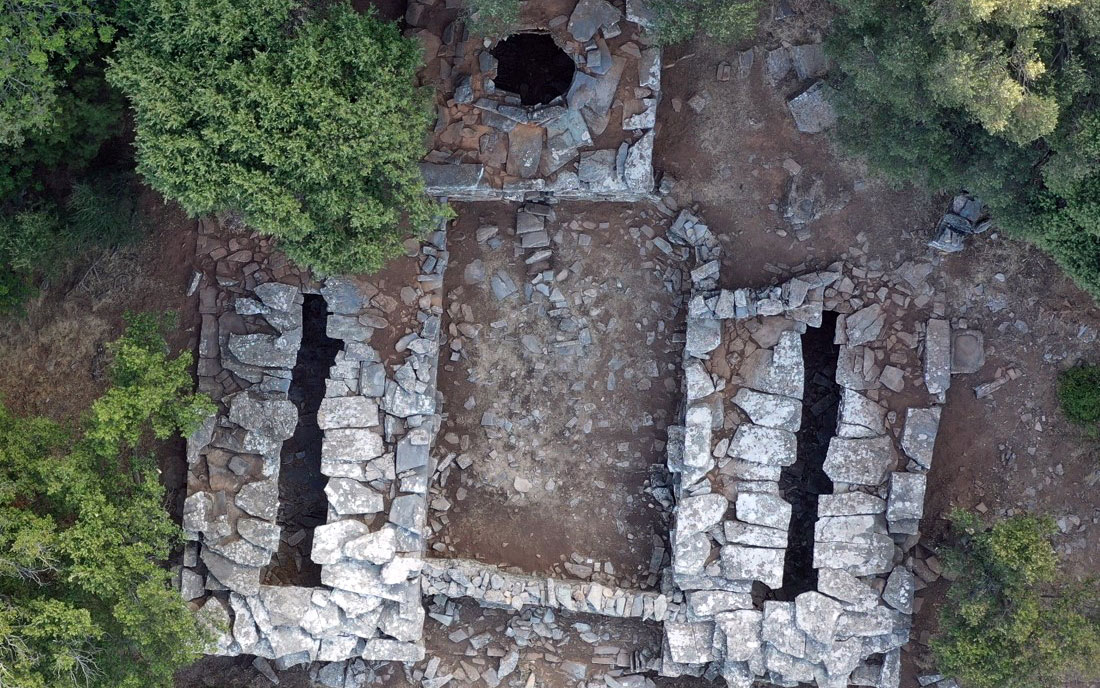The enigma of the “dragon houses” on the island of Evia continues to baffle scientists. The monumental size of the building stones and the elaborately constructed roofs led the local inhabitants to believe that they were built by dragons.
Made of square stone blocks without any binding material, the structures were used as shepherds’ huts in late antiquity, but seem to have served other purposes for more than two millennia.
Archaeologists are trying to ascertain whether the buildings, located in the mountains of southern Evia, served as small sanctuaries, quarrymen’s shelters or outposts.
A Greek-Swiss team, led by Dr Angeliki G. Simossi (Ephorate of Antiquities of Evia) and Professor Karl Reber (Swiss School of Archaeology in Greece), conducted research at the dragon house at Palli Lakka, near Styra, to clarify the floor plan and the construction method and to collect ceramic fragments, allowing more accurate dating.
Research this year confirmed that the edifice at Palli Lakka was built in antiquity.
This article was previously published at ekathimerini.com.












